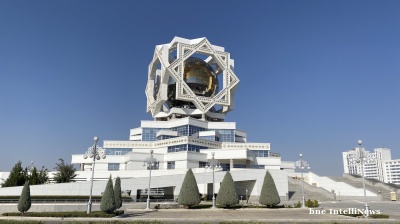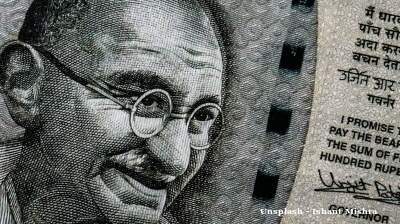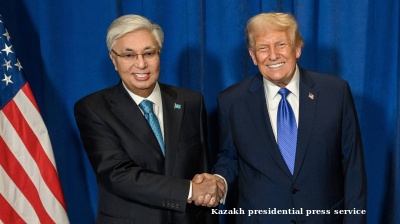Turkmenistan is in the midst of its worst economic crisis since the 1990s. Despite Ashgabat claiming it has no coronavirus (COVID-19) cases at all, the global pandemic has driven up inflation and food shortages are widespread. This has sparked protests across the country, exacerbating an already tense social order.
Troubles were present well before the coronavirus hit. Low gas prices and the suspension of gas exports to Russia between 2016 and 2019 worsened the situation. Moreover, food supply chains have been deteriorating for several years. Caused by poor harvests, the looming crisis led the majority of the population to shop at government-operated stores because these have lower prices than private markets. The choice is a difficult one: between diminished rations at state stores or purchasing products at expensive shops. Overall, faced with serious revenue shortfalls, the government has increasingly shifted financial burdens onto the people.
Though the country denies the existence of COVID-19, the pandemic nevertheless exacerbated these woes. For instance, on February 24, Turkmenistan closed its 713-mile border with Iran, further undermining the fragile balance between relatively low-priced state-owned stores and private-sector food suppliers. Despite a partial re-opening of the border, food supplies continued to falter — imports of many essentials were almost completely halted.
But most of all the pandemic set off a chain of protests which could prove existentially dangerous for the government. First of all, the protests are territorially dispersed, which shows the depth of troubles which touched all corners of the large country. On April 3, a group of several dozen people, mainly women, from villages on the outskirts of the city of Mary briefly blocked the major road which connects the city to the rest of the country. On the following day people gathered outside the Mary provincial administration to complain about hyperinflation and the shortage of such essentials as flour and cooking oil.
On top of the pandemic-related troubles, in late April the country was hard hit by powerful hurricane-force winds. Torrential rain followed, but the government did little to alleviate the situation. This caused by far the largest protest in Turkmenistan since 1991 when a crowd of up to 1,000 people, gathered in the Zhelezhnodoroga district of Turkmenistan’s eastern city of Turkmenabat (formerly Charjou) on May 13. The protesters demanded government action and protested the authorities’ ineffectiveness.
Beyond the provincial cities, the crisis also hit the centre, Ashgabat. As in the rest of the country, problems in the capital started well before COVID-19. Salaries dropped, while inflation speeded up. The troubled economic situation created a fertile ground for criminal activity. Reports from Ashgabat claimed that women were robbed of jewellery on the streets. One 60-year-old woman was even killed after being robbed.
A new Turkmen opposition movement, Democratic Choice for Turkmenistan, recently announced that it would start street protests inside the country — a rather new development in the politically tightly controlled state. Moreover, different sources reported that banknotes with comments critical of the president are circulating in the country. Messages like “Death to Haramdag, the people have woken up” and “Haramdag, güm bol!”, a Turkmen expression meaning “get lost!”, are written by hand on various denominations. “Haramdag” is a play on the president’s official title, Arkadag.
The lack of response is altogether surprising as Turkmenistan has shown largess by sending essential aid to neighbouring countries. Russia and Iran were among the first. Ashgabat is also helping Afghanistan and in early May even sent aid to Uzbekistan which experienced severe flooding as a result of the partial collapse of a dam near the town of Sardoba.
There are also widespread concerns about the spread of the coronavirus, which the government continues to insist has not afflicted anyone in Turkmenistan — which officially means the country is one of the very few pandemic-free states in the world. However, the mounting evidence indicates otherwise. RFE/RL reported even reported that authorities in Turkmenistan’s second-largest city, Turkmenabat, transferred people held in a quarantine zone on the city’s outskirts to a smaller a number of clinics. In a message the US embassy to Turkmenistan states that "while there are no official reports of positive COVID-19 cases in Turkmenistan, the US embassy has received reports of local citizens with symptoms consistent with COVID-19 undergoing COVID-19 testing and being placed in quarantine in infectious diseases hospitals for up to fourteen days". Turkmenistan scolded the US for the statement. Moreover, considering how hard-hit are Turkmenistan’s immediate neighbours, it is highly unlikely that the country would be free of infection.
To this should be added concerted protests by ethnic Turkmen migrant expats in Cyprus, Turkey and elsewhere against the government’s ineffectiveness and unwillingness to provide help.
The overall dire economic situation thus poses a new kind of threat to the government, which could shake its entire facade of power. However, one should bear in mind the geography of the country. The current protests are uniquely widespread, but there are hundreds of kilometres of sparsely inhabited, mainly desert land between major population centres. This single fact would make it easier for the central government to shut entire cities in case major troubles begin.
Features

Washington has a new focus on a Caspian energy play
For most of the last three decades since winning independence, Central Asia has been a bit of a backwater. Not any more. The Trump administration is becoming more focused on Turkmenistan's vast gas reserves and can smell money and power there.

BOTAŞ and Turkey’s hub ambition: from “30-year dream” to cross-border reality
For Ankara, the symbolism is as important as the molecules: Turkey’s energy map is shifting from end-market to hub.

Indian bank deposits to grow steadily in FY26 amid liquidity boost
Deposit growth at Indian banks is projected to remain adequate in FY2025-26, supported by an improved liquidity environment and regulatory measures that are expected to sustain credit expansion of 11–12%


